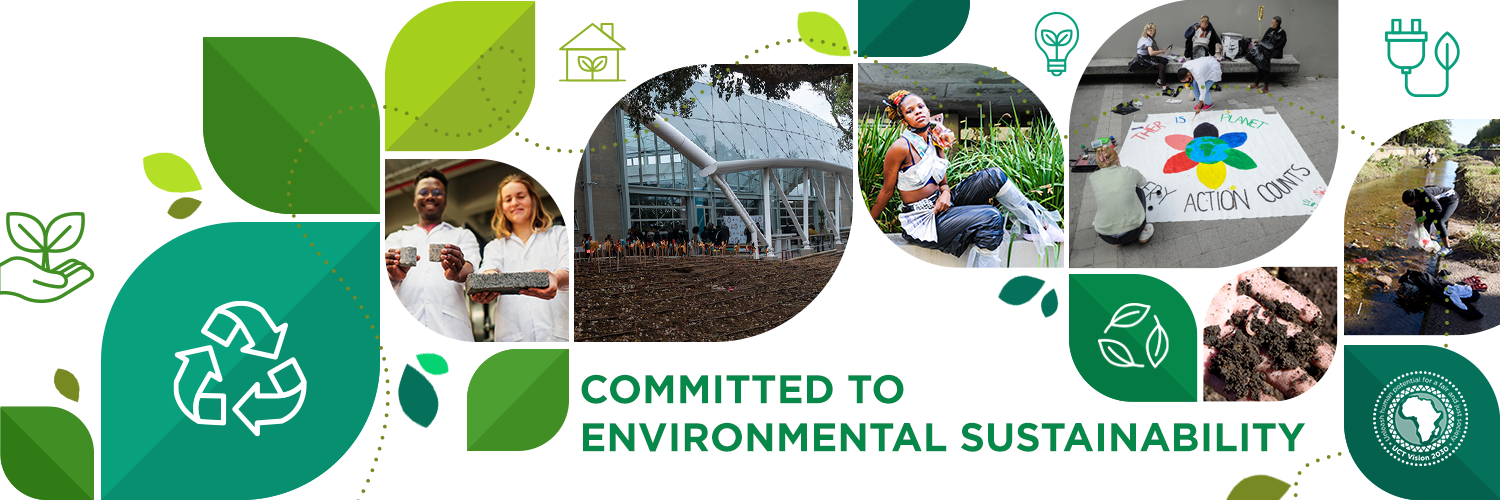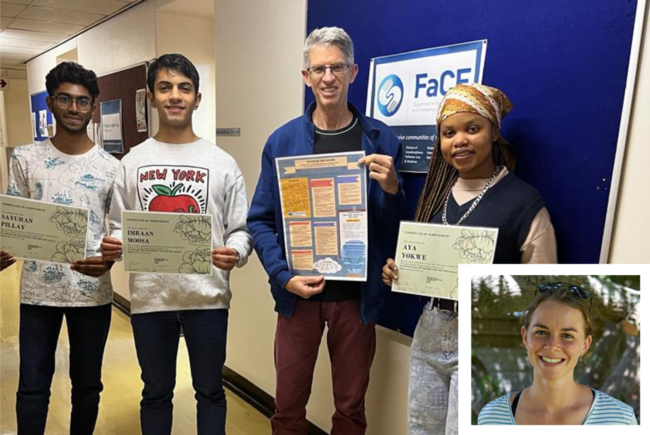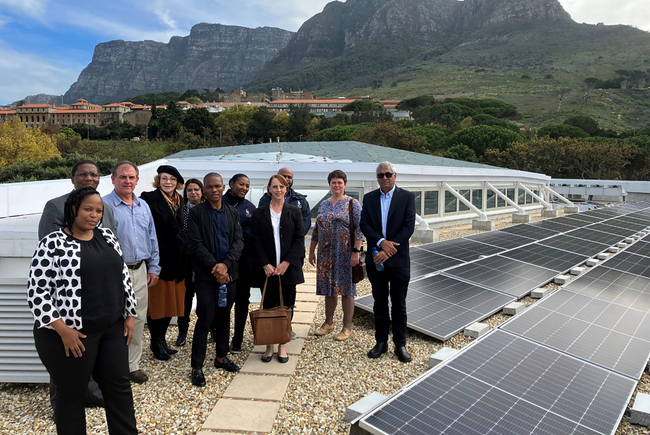ACDI researcher wins AXA XL Climate Water Nexus Award
07 November 2023 | Story Michelle Shields. Photo Petra Holden. Read time 4 min.
Dr Petra Holden, a University of Cape Town (UCT) researcher based at the African Climate and Development Initiative (ACDI), has been awarded the prestigious AXA XL Climate Water Nexus Award for her research on equitable nature-based solutions for a sustainable climate future.
Since inception, AXA’s scientific philanthropy initiative has supported over 700 transformative academic research projects on major global risks related to health, climate and environment, and socioeconomics. The AXA Research Fund helps scientists disseminate their findings to inform decision-making and contribute to societal progress. The Climate Water Nexus Award resulted from the collaboration between the AXA Research Fund and AXA XL (a speciality division of AXA) and is awarded to research that highlights how water is an underappreciated and undervalued risk closely interlinked with climate change.
The aim of the AXA XL award is to recognise innovative, transdisciplinary research that adopts either a global or regional perspective and highlights the link between freshwater and its ecosystem services and climate change.
Nature-based solutions and water security
Dr Holden’s research cuts across natural and social sciences with a focus on southern African ecosystems and landscapes critical for clean water provision, biodiversity, and local and indigenous livelihoods.
“By comparing southern African findings to cases across the globe, I show similarities, contrasts, and knowledge gaps related to what nature-based solutions comprise, their impacts and equitable and sustainable approaches to their design, planning, implementation, and evaluation,” explained Holden.
A core theme of the research is identifying and analysing the local and regional enablers that facilitate equitable and sustainable nature-based solutions for water security, carbon sequestration, biodiversity, and climate change adaptation.
Impact of the research
Holden said that her research provides evidence for successful implementation of nature-based solutions which accounts for social equity processes and sustainability of ecosystem services within a changing climate.
“Policy and practice need to critically engage with enabling mechanisms to scale and finance equitable and sustainable nature-based solutions that achieve localised sustainable development goals alongside addressing global societal challenges,” she said.
“This prize will help maximise the impact my research can have on practice and policy to support the scaling of nature-based solutions for climate and water challenges.”
Recently, Holden linked multiple climate models to a hydrological model and showcased that appropriate forms of catchment restoration could lessen the impacts of climate change on drought in South Africa. Using the Cape Town Day Zero drought as an example, she showed the importance of embedding nature-based solutions into a broader portfolio of water adaptation options for managing water supply to urban areas under changing climate conditions. This was one of the first studies that was able to showcase the potential for nature-based solutions to reduce the impact of climate change on drought extremes.
Using the prize
Holden said the prize will contribute towards supporting her research, including deepening understandings of the types of changes required to support equitable and sustainable nature-based solutions at local levels that can be scalable to contribute to addressing global societal challenges.
“I want to find ways to sufficiently elevate various types of knowledge, including experiential, local and indigenous knowledge to broaden and deepen understandings around equitable and sustainable nature-based solutions,” said Holden. “This prize will help maximise the impact my research can have on practice and policy to support the scaling of nature-based solutions for climate and water challenges in ways that provide equitable and sustainable benefits for people and biodiversity.”
 This work is licensed under a Creative Commons Attribution-NoDerivatives 4.0 International License.
This work is licensed under a Creative Commons Attribution-NoDerivatives 4.0 International License.
Please view the republishing articles page for more information.

Committed to Environmental Sustainability
The University of Cape Town’s (UCT) Vision 2030 strategy’s goal is to unleash human potential in pursuing a just and equitable society. This vision rests on three fundamental pillars: sustainability, excellence, and transformation. In line with this strategy, the university has developed different initiatives, including a sustainability strategy, to provide direction for UCT’s environmental sustainability. This strengthens the university’s ambitions of being a net-zero carbon/energy, water, and waste-to-landfill campus by or before 2050.
UCT Sustainability and the SDGs 2022
UCT is committed to addressing the most critical problems facing the continent and the rest of the world. This report tracks the progress UCT is making towards the United Nation’s Sustainable Development Goals and the African Union Agenda 2063.
Download the PDF version | Read the full report:

The University of Cape Town’s (UCT) Faculty of Health Sciences (FHS) took part in their first scorecard for the Planetary Health Report Card (PHRC), a global student-led initiative to promote education about planetary health and environmentally sustainable healthcare in health science campuses
31 May 2023 - 4 min read
“We learnt some valuable lessons during [COVID-19] lockdown that we will take into the future, many of them contributing to more efficient and environmentally sustainable digital methods for doing certain things.”
– Manfred Braune, the director for environmental sustainability at UCT





























